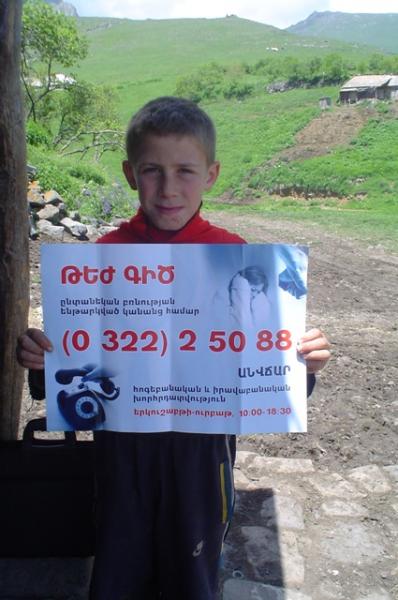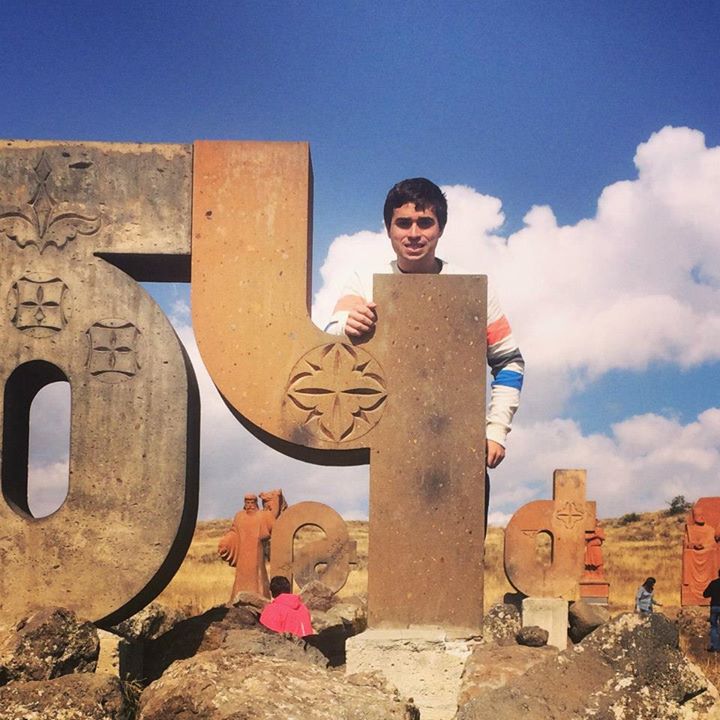Different expressions of violence including, but not limited to beating, intimidation, torture, oppression and humiliation have existed in Armenian families throughout time. However, the phenomenon behind domestic violence is a reoccurring one, not only throughout Armenian societies, but in countries all around the world. This poses another question: how does violence express itself and what do societies do to fight against it. Public apprehension concerning domestic violence and the lack of legal rights not only hinders the prevention of domestic violence, but instead allows such behavior to occur again because no one is punished by law.
In Armenia, there is no law regarding domestic violence which will prevent and solve the problem. Furthermore, no trained specialists, police officers or judges who have to properly address existing domestic violence cases. This is partly due to their biased belief that women have provoked the violence themselves. Similarly, no legal mechanisms have been established to protect the individuals affected by domestic violence and to punish guilty ones. The majority of women building their case to the Court have to wait too long, before they can proceed with their case. Nevertheless, judges lack the understanding on domestic violence and quite often do not differentiate it from other forms of violence.
All of the aforementioned reasons encouraged the “Women’s Rights Center” NGO to initiate the development of law on “Domestic Violence” in 2007. The draft of the law was reviewed and processed by international and local experts and presented to the Ministry of Labor and Social Affairs for further circulation in September of 2009. On November 12, 2010, the draft law was submitted to the Government for further deliberation.
The draft law regulates the relations connected to domestic violence, defines domestic violence, its types, the parties involved, the circle of agencies which have authority to prevent domestic violence as well potential funding sources for those agencies, relative means for special preventative measures to avert domestic violence and their adoption.
The draft law grants the police the authority to identify and prevent domestic violence cases and ensure urgent and effective protection of the victims. This draft will also aid in the establishment of a structured system, providing social assistance to the victims and would subsequently be governed by the state’s authorized body. Hence, the draft law prioritizes violence prevention, rather than implementation of the punishment. The law will contribute to the decrease of evoked criminal cases concerning domestic violence.
Currently, the interagency committee organizes regular meetings and discussions on the draft law on “Domestic Violence”, which soon will be included in the agenda of the National Assembly. The Committee consists of representatives from ministries, police as well as the NGO sector. The last formal discussion was held on February 17, 2012 and primarily concerned the topic of the mechanisms for the practice of the law.

Already in 2010, the Government took measures to combat violence, more specifically concerning domestic violence. According to the Prime Minister’s decision ( number 213-A) held on March 30, 2010, an interagency committee against gender-based violence was created in Armenia, the goal of which is to increase the effectiveness of preventative measures regarding gender-based violence as well as to develop national program “Against Gender Based Violence”. The creation of the Interagency Committee is a step symbolizing political will, which has shown RA Government’s readiness to take clear measures against gender based violence in the Republic of Armenia.
The draft law and its amendments and supplements will be submitted to the government for approval and finally to the National Assembly.
It is also appropriate to note that the draft law concerning domestic violence in Armenia should be in compliance with the convention adopted by the Council of Europe concerning the international act on violence against women as well as domestic violence, which Armenia has not ratified yet.
If the draft law on domestic violence, which was designed with the actual help of the members from the Women’s Rights Center, is accepted by the National Assembly, it will have an immense impact on the prevention of domestic violence and elimination of negative consequences of it, as well as the existence of main mechanism will give an opportunity to the parties not to divorce but to take more effective measures which are provided by this law.
Neighboring countries of Armenia, such as Georgia, Azerbaijan and Turkey adopted a similar law concerning domestic violence. In Armenia, the law is under discussion with hope that it will enter the National Assembly and be successfully adopted by the end of this year.
Nvard Margaryan





that .The act of getting a woman imnragpeted, even by a married man, is not itself an offense under RA 9262. There must be physical, emotional or economic violence against the woman. The law says: Violence against women and their children refers to any act or a series of acts committed by any person against a woman who is his wife, former wife, or against a woman with whom the person has or had a sexual or dating relationship, or with whom he has a common child, or against her child whether legitimate or illegitimate, within or without the family abode, which result in or is likely to result in physical, sexual, psychological harm or suffering, or economic abuse including threats of such acts, battery, assault, coercion, harassment or arbitrary deprivation of liberty.If there is violence involved, yes they can sue.In the circumstances that the girl was imnragpeted, and they too are both consenting adults, I don’t think there is a case to speak of, unless there is violence involved. We hope this will help you.Thank you.